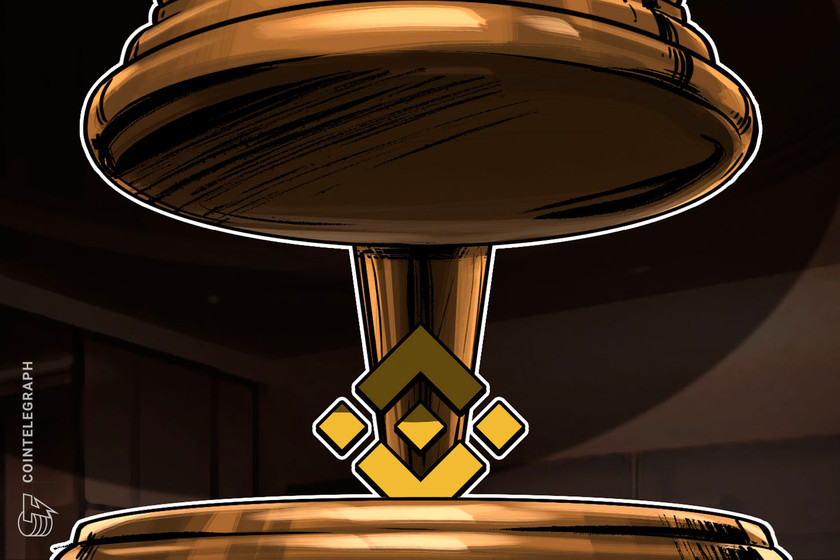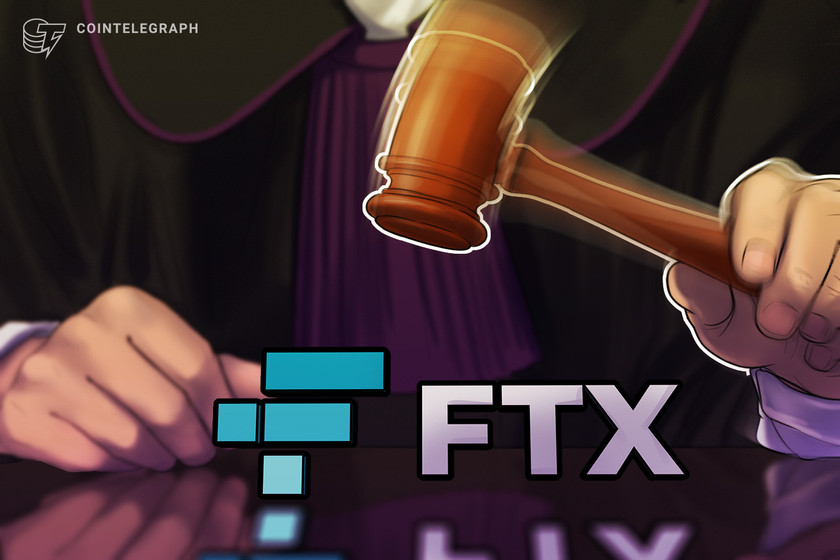Breaking: Binance and CZ sued by CFTC over US regulatory violations


The cryptocurrency exchange and its founder, Changpeng Zhao, have allegedly violated trading and derivatives rules.
The United States Commodity Futures Trading Commission (CFTC) has filed suit against Binance and CEO Changpeng “CZ” Zhao for trading violations, according to a Bloomberg report. The suit was filed in the U.S. District Court for the Northern District of Illinois.
According to the CFTC, Binance failed to meet its regulatory obligations by not properly registering with the derivatives regulator. The cryptocurrency exchange has been the focus of a CFTC investigation since 2021. The exchange acknowledged in February that it would likely face regulatory action in the United States and was already working with regulators.
In addition to the CFTC, Binance has been under investigation by the Internal Revenue Service and federal prosecutors, who have examined the exchange’s adherence to Anti-Money Laundering rules. Meanwhile, the Securities and Exchange Commission has been investigating whether Binance allowed U.S. traders to access unregistered securities.
Binance is the biggest cryptocurrency exchange with over $8.5 billion trading volume daily.
The price of Bitcoin (BTC) has plummeted since the announcement, falling from $27,781 at 13:45 UTC to $26,755 in an hour and 15 minutes.


The suit claims Binance conducted transactions in Bitcoin (BTC), Ether (ETH) and Litecoin (LTC) for persons in the United States since at least 2019 despite a policy of blocking or restricting U.S. customers. The company and its executives intentionally violated U.S. law, the suit said:
“All the while, Binance, Zhao, and Lim, the platform’s former Chief Compliance Officer (“CCO”), have each known that Binance’s solicitation of customers located in the United States subjected Binance to registration and regulatory requirements under U.S. law.”
According to the suit, Binance obscured the location of its executive offices, as well as the “identities and locations of the entities operating the trading platform.” The suit cites an internal Binance memo in which CZ stated that the purpose of that policy was to “keep countries clean [of violations of law]” by “not landing .com anywhere. This is the main reason .com does not land anywhere.”
Binance employs at least 60 people in the United States, “and that number continues to increase,” the CFTC said in the suit. It also holds U.S. trademarks. Binance launched Binance.US arm in 2019.
Related: Binance employees allegedly help customers in China bypass KYC controls
Among other charges made by the CFTC are the claims that Binance failed to register with the regulator and violated provisions of the Commodities Exchange Act and CFTC regulations, including legally mandated implementation of Anti-Money Laundering and Know Your Customer (AML/KYC) controls.
In addition, the defendants failed to supervise the company’s activities adequately and willingly conducted activities beyond U.S. borders to evade the U.S. Commodities Exchange Act and took other actions to evade regulation:
“Zhao and others acting on behalf of Binance have used Signal—with its auto-delete functionality enabled—to engage in business communications, even after Binance received document requests from the CFTC and after Binance purportedly distributed document preservation notices to its personnel.”
The suits stated that Binance offered leverage to customers trading on the spot market and called two categories of product it offered “futures” and swaps it called “perpetuals.” It allegedly also “traded on its own platform through approximately 300 ‘house accounts’ that are all directly or indirectly owned by Zhao,” as well as through accounts owned by entities Zhao owned or controlled. Binance did not disclose that activity to its customers.
1/23
Oh boy https://t.co/2JnbfirRrp
Case is up and it’s bad.
This is the CFTC attempting to strike *fatal* blow to Binance, and at first read through… I think they actually have really strong chances here of succeeding in toppling the Binance empire.
— Adam Cochran (adamscochran.eth) (@adamscochran) March 27, 2023
CFTC Global Markets Advisory Committee member Christopher Perkins said in a statement provided to Cointelegraph:
“While it’s too early to opine on the merits of the CFTC case against Binance, we remain supportive of principles-based regulation across the crypto industry.”
The CFTC is pressing seven counts for executing unregistered futures transactions, providing illegal commodities options, failure to register as a Futures Commission Merchant, Designated Contract Market or Swap Execution Facility, failure to supervise diligently or implement AML/KYC measures and law evasion.





















